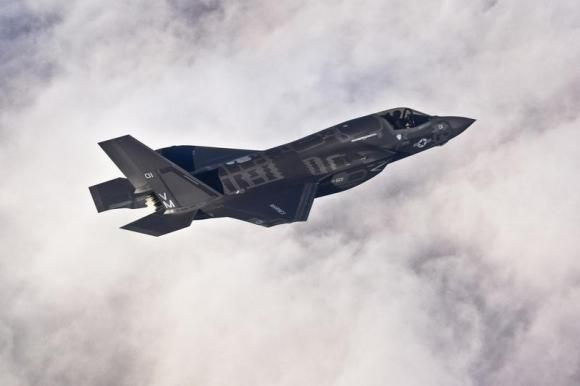Israel Commits To 31 Lockheed F-35 Aircraft, Cancels 6 Boeing-Built V-22 Ospreys Amid Increased Political Tensions

As diplomatic relations between the U.S. and Israel soured this week, Israel decided to cancel the purchase of six Boeing-built V-22 Osprey aircraft, potentially heaping more pressure on the relationship between the two countries. However, within days Israel made a commitment to buying 31 F-35 jet fighters.
The initial cancelation of the Osprey was met with alarm in Israel, with the Israel Hayom newspaper reporting that it might cause problems between the two countries.
"Some are concerned that against the backdrop of rattled Israel-U.S. relations the decision to cancel the purchase will anger the U.S. administration," mentioned a report in the paper’s English-language website. "[Defense Minister Moshe] Yaalon will have to make the case to the US that his decision was made objectively and based on national interests alone."
Israel and U.S. relations have been strained since the beginning of the summer's war in Gaza, which preceded a range of diplomatic snubs and political jabs, and the recent comments from an anonymous U.S. official claiming that Israeli Prime Minister Benjamin Netanyahu was “chickensh*t.” While Netanyahu hit back at the comment, the U.S. scrambled to repair the damage with its closest Middle East ally.
The deal for the Ospreys, each costing $70 million per unit, would have ended up costing $1 billion with parts and support. However, it now seems that the aircraft was too expensive for Israel, and it pulled out due to budget constraints. But the diplomatic significance of the deal and the reason for canceling appear to have been undermined by the fact that the country will now spend $2.75 billion on the F-35s, the United States’ newest jet fighter and most expensive military program in history, costing upward of $1 trillion.
Crucially for Israel, a Boeing spokesperson said that no contract had ever been signed for the six aircraft and that Israel had only signaled intent to buy, meaning that they were not locked into a cancellation fee.
While Lockheed Martin refused to confirm that a deal had been concluded with Israel for the F-35s, Israel does have a production stake in the aircraft, through Elbit Systems Ltd., which produces the special helmets that pilots wear, and the state-owned Israel Aerospace Industries, which will sign a deal next week to start production of the aircraft's wings.
Initial reports suggested that the country was going to buy 29 F-35s, and a statement of intent from Israel signed in July 2013 states that the country’s next purchase would be 31 aircraft.
“When they procure them and in what numbers is up to the country. They do it at their own pace,” said Eric Schnaible, the F-35 International Communications Manager for Lockheed Martin.
Dakota Wood, senior research fellow of Defense Programs at the Heritage Foundation, said it makes more sense for Israel to spend money on the F-35 than the Osprey. “Why does Israel need a tilt-rotor aircraft with a 1,000 mile range? The country is 200 miles from north to south and 50 miles wide,” he said. "For Israel, the F-35 may represent better value for money.”
© Copyright IBTimes 2025. All rights reserved.






















